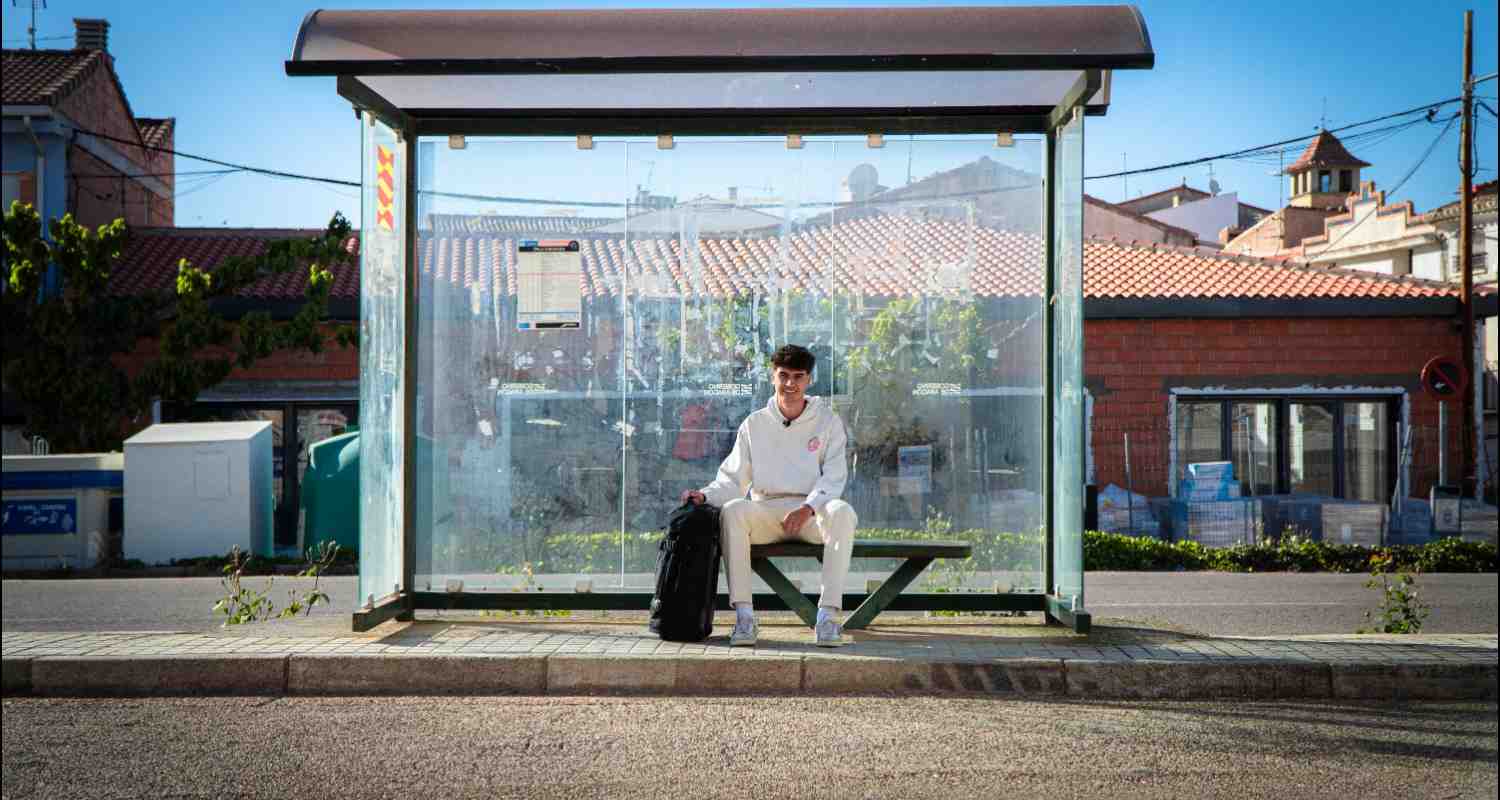
University Challenge: Challenging young talent
University Challenge: Challenging young talent
Talent competitions not only allow companies to discover young people with outstanding skills, but also offer generation Z the opportunity to showcase their capabilities in practical and challenging environments.
The recruitment of young talent has become a challenge for companies, which are increasingly having trouble finding the professional profiles they need. The rapid advancement of technology, the imbalance between academic training and the demands of the labor market, and a more demanding generation Z are leading companies to incorporate new methodologies to attract young people. These include talent competitions, where participants must propose solutions to a challenge proposed by companies to demonstrate their skills.
"Now the selection process is reversed and it is practically the young people who are selecting the companies. This has forced us to convert these processes into more interesting formats that also generate a learning environment for them," says Claudia Sandia, head of recruitment and selection of junior talent at Universia, a company from Grupo Santander that seeks to boost the employability of junior talent by connecting companies with universities and educational centers.
The Spanish Association for Digitalization estimates that more than 120 thousand vacancies in the technology sector remained unfilled in 2022
Generation Z, a more demanding youth
Generation Z, those born between the mid-1990s and 2010 who are currently entering the workforce, "is a more informed generation but also one that demands more, one who is very concerned about corporate social responsibility and whether companies are in line with their own values," Sandia continues. There has been a change "with respect to previous generations and now young people approach companies saying: I am going to bring my knowledge and contribute to your projects. What is your value proposition for me?"
As a result, companies today must demonstrate their employer attractiveness, and the search for talent has evolved from simply posting a job offer to formats where young people can display their skills in a more laid-back environment. "Experiences such as networking meetings or talent competitions are becoming more common because they are a way for companies to present themselves and, at the same time, meet and attract young people with the profile they are looking for," Sandia continues.
In Spain, there is also the paradox between a high level of youth unemployment, with nearly one in three people under 25 not working, and a severe shortage of talent in sectors such as technology, where the Spanish Association for Digitalization estimates that in 2022 there will be more than 120,000 vacancies unfilled for positions such as software developers, cybersecurity experts, or telecommunications experts. 75% of the companies surveyed for the report, 'Paths that converge', by the consultancy firm KPMG and the Princess of Girona Foundation indicate that it is difficult for them to recruit the professionals they are looking for, which can pose "a risk to the sustainability and growth of the business".
Talent competitions are a different way for companies to approach young talent, incorporating the concerns of generation Z
Seducing young talent
The business world is immersed in the search for new ways to captivate junior talent, for example by showing what the day-to-day life is like in the company, a tactic used by the "Life at Google" X (Twitter) account for this multinational technology company, or with 'gamified' talent competitions. Universia annually promotes digital competitions based on video games to evaluate the participants' skills, such as the 2 editions of Metaworking or more recently TalentRace, which will be this year's edition. "We adapt our proposals to the interests of generation Z," explains Sandia.
In talent competitions, also called challenges or hackathons, an expression taken from the meetups of programmers to develop software, a question is proposed that the participants must solve. The themes vary according to the area of interest of each company but their framework is always similar: a campaign to publicize the anouncement; an execution phase; and a finale when the result and the winners are announced. These can take place in-person or entirely online.
1,700 university students from all over Spain submitted more than 380 proposals to the Repsol Foundation University Challenge on energy transition
"These competitions are a distinct approach that allows companies to stand out from the range of offers that exist in the market, to strengthen their employer branding, and to reach an audience that they might not otherwise reach," says Sandia. The challenges are not a selection process and "in the competitions that we organize there is no commitment to employability, something that we make very clear from the beginning. But we do know that between 50 and 60% of the participants in the final phases are considered for future selection processes," which ends up turning these challenges into a boost for the job search.
As a more immediate reward, these challenges usually include academic recognition and a monetary prize for the winners and offer the possibility of "networking by meeting other university students with similar concerns, as well as human resources managers at the companies."
These challenges are also a learning experience about the demands of the labor market and a favorable context for the companies' 'talent recruiters', "who have the opportunity to observe how the participants behave, their ability to communicate, work in a team, or make decisions, in a very natural way, without the pressure that can occur in a selection process."
Seeking solutions for the energy transition
An example of these talent competitions is the University Challenge on energy transition that the Repsol Foundation promoted this year, aimed at undergraduate, master's, and doctoral students from all over Spain "so that they could contribute their ideas to solving the puzzle of the transition to a decarbonized economy. It is very important to advance in the energy transition and to do so in an orderly and intelligent manner, maintaining the competitiveness of our industry and productive sectors. That is why we believe it is essential to rely on university talent," explains Arantza Hernanz, Director of Education and Knowledge at the Repsol Foundation.
The winning projects propose solutions such as applying wave power to decarbonize maritime transport or the recycling of wind turbines from wind farms
1,700 students from 84 universities participated in this challenge, grouped into teams, and presented more than 380 proposals to provide solutions to the five challenges posed in the anouncement: decarbonized cities; electric mobility; circular economy; decarbonized industry and energy transition and society. After the selection process, 93 students were chosen, organized into 25 teams, to compete for one of the five prizes in the grand finale held in Madrid. The finalists participated in a hackathon weekend working on their projects until they became business realities and defended them before a jury of Repsol professionals and experts. The five winning teams, one per category, received €12,000 in prize money and the possibility for the team members to complete a training grant at Repsol.
The University Challenge was an opportunity for participants to show off their talent, since fewer than 100 of the more than 1,700 students who presented their ideas, made it to the finale. To do so, they had to demonstrate "that they are motivated and knowledgeable kids because the selected projects are very important. They also had a wide variety of profiles that are interesting for Repsol and other companies: chemical and telecommunications engineers, but also biologists, biotechnologists, computer scientists, journalists, and economists," says Arantza Hernanz.
The Repsol Foundation University Challenge
The Repsol Foundation University Challenge
The Repsol Foundation has organized a University Challenge on energy transition, aimed at undergraduate, master's, and doctoral students from all over Spain. These are the details of the grand finale held in Madrid:
93
students
25
teams
29
universities
Get to know the participants and their projects
Get to know the participants and their projects

Gabriela Ceballos
Gabriela Ceballos
From Ecuador to fulfill her professional challenge

Gerardo Cambra
Gerardo Cambra
Smart bus shelters against population decline

Simran Ramchandani
Simran Ramchandani
Bacteria that capture CO2 and transform it into sugar
From Ecuador to fulfill her professional challenge

Gabriela Cevallos, Vianny Castellanos, and Noelia Cruz, all three students in the Master's in Communication and Creative Industries at the Universidad de Alicante, were part of the EcoFuturo team. They were named the winner of the Decarbonized Cities challenge in the Repsol Foundation Challenge. Their project “Urban planters powered by a mini waste treatment plant” proposes integrating a miniature system for processing organic waste from the hospitality industry to produce compost that fertilizes the plants and also converts the methane gas resulting from the process into water to use for drip irrigation for the planter.
Gabriela, born in Quito (Ecuador), is not afraid of challenges and moved from her hometown to fulfill her professional challenge, assuming that it meant being away from her loved ones and starting from scratch in another country. In Ecuador she studied Organizational Communication but wanted to further her education and decided to come to Spain for the master's program at the Universidad de Alicante. As she explains in the following video, her attitude towards challenges also helped her in the finale of the challenge. From this experience, the main lesson she learned was that working under pressure, with very tight deadlines, was helpful in completing her project.
Smart bus shelters against population decline

Engineering student, Gerardo Cambra, is 21 years old and is from Lucena de Jalón (Zaragoza), a town with a population of 222 inhabitants that is threatened by population decline. This personal experience was the basic driving force behind the idea that made him the winner, alongside his classmates Adrián Almoyna, Gerardo Artal, and Daniel Baya, of the Energy Transition and Society challenge in the Repsol Foundation University Challenge. The four of them come from the rural world and study at the Universidad de Zaragoza and, when they heard the anouncement through social media, they decided to form the team 'Los amigos' and present a project about a reality they know all too well.
To counteract the lack of services that is causing people to move out of many towns, they put forward their proposal “Marloquinas: smart shelters in rural Spain”, a design that converts the shelters at bus stops into small bus stations, where you can buy tickets, obtain information about your trip or the estimated time of arrival, using solar panels as a source of energy. As an added value for both residents and transport companies, these 'marloquinas' would also have lockers for picking up and dropping off packages. These packages would then be delivered by the buses themselves.
Bacteria that capture CO2 and transform it into sugar

Simran Ramchandani, a Master's student in Industrial and Environmental Biotechnology at the Universidad Complutense de Madrid, was another of the finalists who made it to the University Challenge hackathon. Simran is passionate about popular science and through her account @sim_biotica she spreads her knowledge on social media to help non-specialists understand phenomena such as COVID. It was precisely during the pandemic that she decided that she had to use her training in biology to help others.
With her team, she reached the finale with the project 'Biotech UCM', which proposes using a specific type of cyanobacteria, a microorganism capable of absorbing CO2 and transforming it into a type of sugar called saccharose, as an alternative to capture the industrial emissions of this gas and convert it into a useful product. Her participation in the Challenge highlights the lesson of how to present and sell a product in a context very similar to a real work environment.


